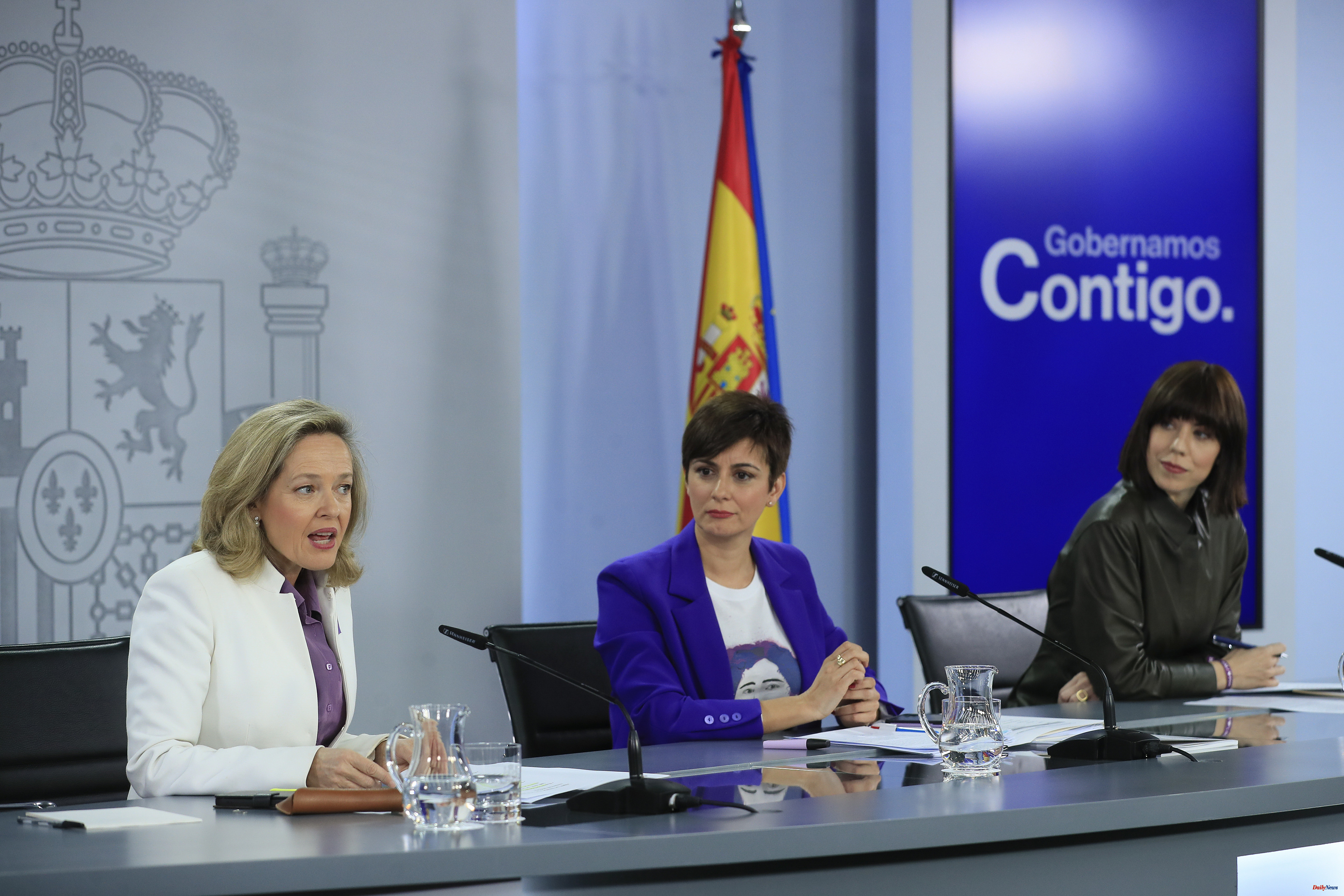The detail was not left out. In the week of 8-M, the color purple predominated in the press room after the Council of Ministers, and the absence of the Minister for Equality. Three socialist ministers, Nadia Calviño, Isabel Rodríguez and Diana Morant have appeared at an appointment that has been used to boast of a feminist agenda and advances in the rights and protection of women. "A legislature of progress", they boast in La Moncloa on feminist matters.
The Council of Ministers has approved this Tuesday the draft law to guarantee the equal representation of women and men in politics, Administration and companies and an institutional Declaration on the occasion of International Women's Day. Despite being two aspects that can be associated with the Minister of Equality, she has not appeared. In 2020 and 2022, Irene Montero did appear at La Moncloa in the preview of 8-M. Not in 2021, only the then spokeswoman María Jesús Montero did it, with a format that still dragged, despite a year having passed, the restrictions of the pandemic, with a face-to-face and telematic format.
"It has been a legislature of progress and we have made a report assessing the progress of the Government's political and regulatory action. As a summary of this balance: of the more than 1,000 regulations approved by the Council of Ministers, 25% of them have had a positive impact specifically for women", has been the reflection conveyed by Isabel Rodríguez, spokesperson for the Executive. "Gender equality is one of the vectors that guides us", has completed the vice president Nadia Calviño.
The absence of Irene Montero has been justified on issues of "organization and agenda" of the issues discussed in the Council of Ministers and that the parity law has been coordinated by the Ministry of the Presidency, since it affects various departments. However, the Minister of the Presidency, Félix Bolaños, has not appeared, and Vice President Calviño has.
This vindication by three PSOE ministers of the Government's feminist agenda occurs on a day in which, for the first time, the Executive is going to fracture in a vote on a regulation promoted by the Council of Ministers. The members of Unidas Podemos are going to vote against in Congress the reform of the 'only yes is yes' law proposed by the PSOE to increase the penalties for sexual offenders and avoid future reductions. A tense atmosphere, since the vote is still a disavowal of Minister Irene Montero, who rejects the socialist proposal, even though the socialist sector tries to downplay the matter.
As this newspaper has reported, La Moncloa's position is to prioritize the change in the norm to who is voted with, trying to place United We Can on the side of those who are not willing to "fix the problem." "What it is about is solving, fixing a problem. In these terms the vote must be valued," said the spokesperson for the Executive. "It is important not to forget what we are talking about: whether we want to solve this problem or not. The best way to maintain this law is to reform what has meant a problem." A veiled, but very clear message to United We Can.
According to the criteria of The Trust Project












